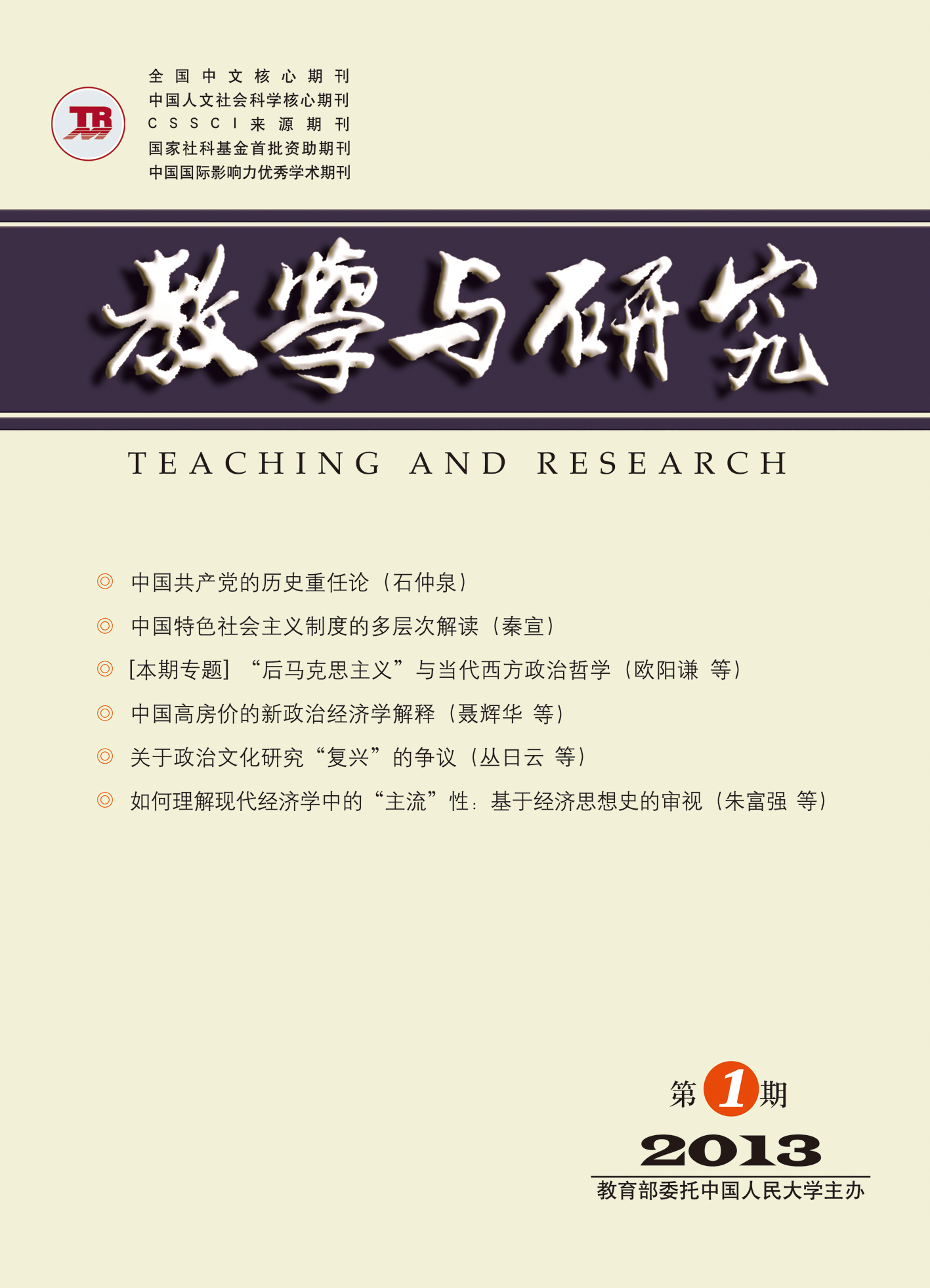|
|
How to Understand the Nature of “Mainstream” in Modern Economics
——An Examination Based on the History of Economics Thought
ZHU Fu-Qiang-1, WANG Xiao-Ming-2
2013, 47 (1):
87-95.
DOI:
The development of modern economics is based on the consilience of knowledge, especially consilience of diachronic knowledge of the discipline. The diachronic disciplinary knowledge provides a more focused research perspective, historical background, analytical tools, and shows the basic trajectory of its theoretical development. However, the teaching material of modern economics puts the diachronically developing theory in a homochronous frame, which removes the epoch, subjectivity and particularity of the theory and leaves only the technologic framework without humanistic thought. The author concludes that rescanning the growth of the economic thought will enable us to give it a more effective and overall examination, become more aware of the temporality of “mainstream” doctrine, and more effectively get rid of the shackles of mainstream paradigms.
Related Articles |
Metrics
|



